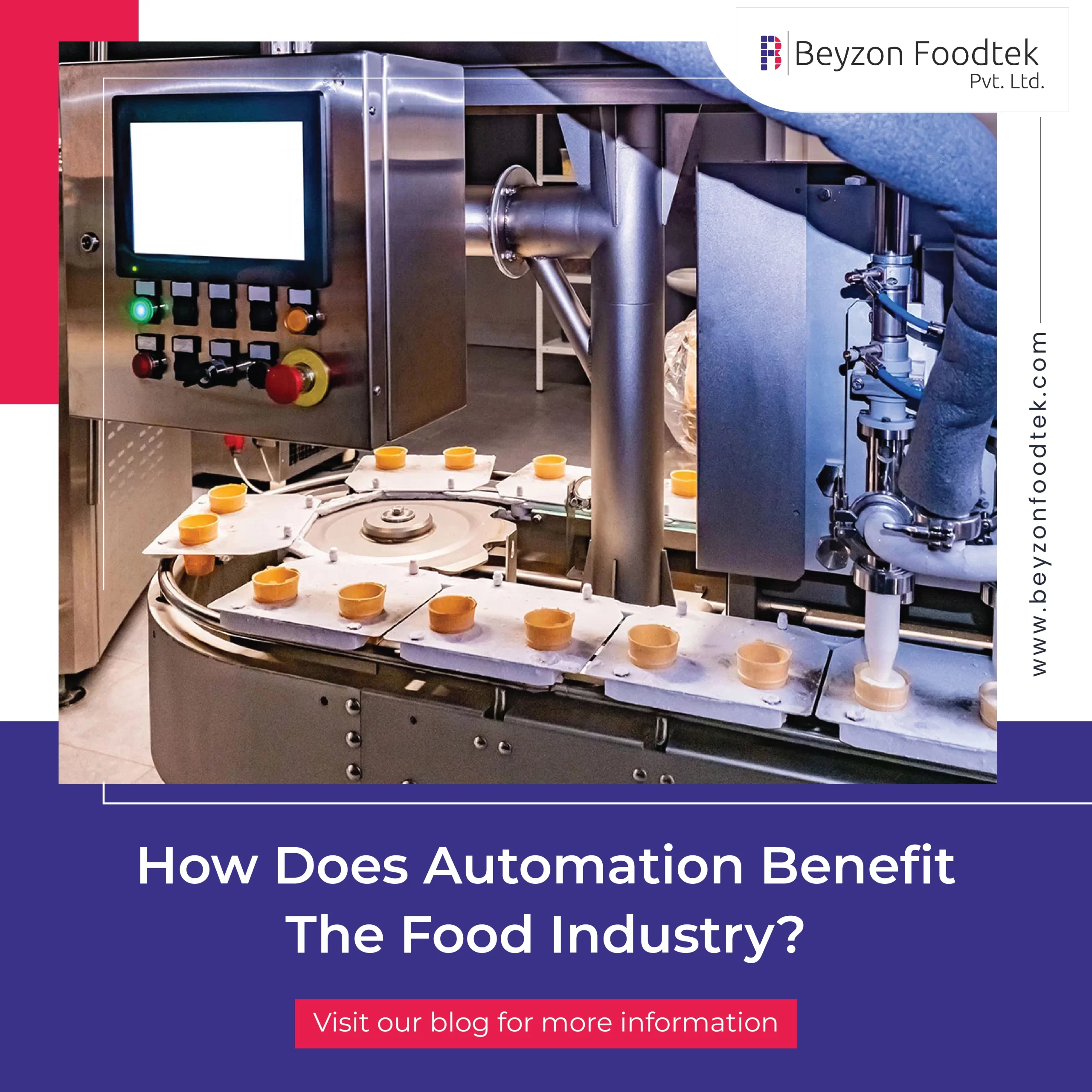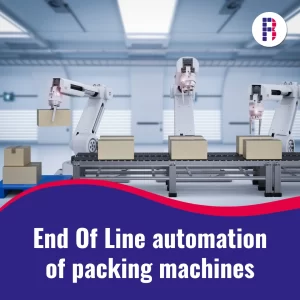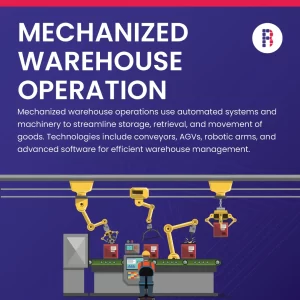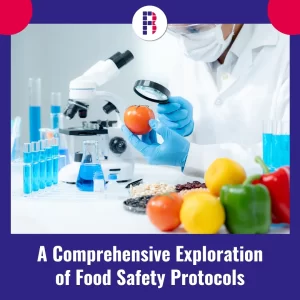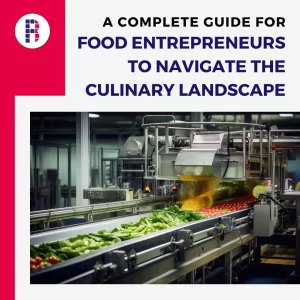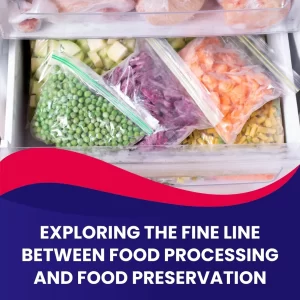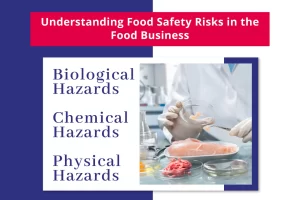Automation streamlines processes enhances efficiency, and drives innovation, revolutionizing food production, packaging, and distribution to propel businesses toward success with sustainable growth and competitive advantage
Introduction:
In recent years, automation has revolutionized various sectors, and the food industry is no exception. From streamlining production processes to enhancing food safety and quality, automation has become an integral part of food manufacturing, packaging, and distribution. In this blog post, we’ll explore ten ways in which automation benefits the food industry, driving efficiency, innovation, and growth.
- Increased Efficiency:
Automation minimizes manual labor, leading to faster production cycles, reduced downtime, and enhanced overall efficiency in food processing plants and manufacturing facilities.
- Improved Food Safety:
Automated systems ensure precise control over critical parameters such as temperature, humidity, and sanitation, minimizing the risk of contamination and foodborne illnesses.
- Enhanced Quality Control:
Automation enables real-time monitoring and inspection of food products, ensuring consistent quality and compliance with regulatory standards throughout the production process.
- Cost Reduction:
By optimizing resource utilization, minimizing waste, and reducing human error, automation helps food manufacturers lower operational costs and improve profitability.
- Greater Accuracy and Precision:
Automated equipment and robotics perform tasks with unparalleled accuracy and precision, leading to uniformity in product characteristics and packaging.
- Flexibility and Adaptability:
Automation technologies are designed to be flexible and adaptable, allowing food manufacturers to quickly adjust production schedules, accommodate changes in demand, and introduce new product lines with minimal downtime.
- Enhanced Traceability:
Automated systems incorporate traceability features such as barcode scanning and RFID tracking, enabling comprehensive monitoring of ingredients, batches, and shipments from farm to fork.
- Sustainable Practices:
Automation promotes sustainability by optimizing energy usage, reducing water consumption, and minimizing environmental impact through efficient production processes and packaging solutions.
- Labor Savings:
By automating repetitive and labor-intensive tasks, food companies can reallocate human resources to more value-added activities such as research and development, customer service, and strategic planning.
- Innovation and Customization:
Automation fosters innovation in food product development and customization by enabling rapid prototyping, experimentation, and adaptation to changing consumer preferences and market trends.
Types of Automation in the Food Industry:
Automation in the food industry encompasses a variety of technologies and systems designed to streamline processes, increase efficiency, and improve overall productivity. Here are some common types of automation used in the food industry:
Robotic Systems:
Robots are increasingly used in various aspects of food production, including picking, packing, palletizing, and handling tasks that require precision and repetition. Collaborative robots (cobots) work alongside human workers in tasks such as packaging and assembly, enhancing efficiency and flexibility.
Automated Packaging Systems:
Automated packaging systems utilize machinery and equipment to package food products efficiently and accurately. These systems can include filling machines, sealing machines, labeling systems, and shrink wrapping machines, among others, to package products in various formats such as bags, bottles, cans, and pouches.
Processing Equipment:
Automation is prevalent in food processing operations, where specialized equipment and machinery are used to automate tasks such as cutting, slicing, mixing, blending, cooking, and pasteurization. Automated processing equipment ensures consistency in product quality, reduces labor costs, and improves throughput.
Conveyor Systems:
Conveyor systems are extensively used in food manufacturing facilities to transport raw materials, ingredients, and finished products between different processing stages. Automated conveyor systems can be customized to handle various types of food products, optimize flow patterns, and minimize product damage and contamination risks.
Quality Control and Inspection Systems:
Automated inspection systems employ sensors, cameras, and machine vision technology to detect defects, contaminants, and inconsistencies in food products. These systems can perform tasks such as foreign object detection, quality assessment, weight inspection, and barcode verification, ensuring compliance with quality standards and regulatory requirements.
Automated Storage and Retrieval Systems (AS/RS):
AS/RS systems automate the storage and retrieval of food products and ingredients in warehouses and distribution centers. These systems utilize computer-controlled mechanisms such as pallet shuttles, stacker cranes, and automated guided vehicles (AGVs) to optimize space utilization, minimize handling time, and facilitate efficient inventory management.
Process Control Systems:
Automation is integrated into process control systems to monitor and regulate critical parameters such as temperature, humidity, pressure, and flow rates during food production. Programmable logic controllers (PLCs), supervisory control and data acquisition (SCADA) systems, and distributed control systems (DCS) are commonly used to automate process control tasks and ensure consistent product quality and safety.
Traceability and Inventory Management Systems:
Automated traceability and inventory management systems track the movement of food products throughout the supply chain, from farm to fork. These systems utilize technologies such as RFID tags, barcodes, and blockchain to capture data on product origin, production history, and distribution, enabling real-time visibility, transparency, and compliance with traceability requirements.
Understanding Global Market
The global market landscape for automation solutions in the food industry is experiencing robust growth, driven by increasing demand for efficiency, quality, and sustainability. According to recent market research reports, the global food automation market size was valued at over $10 billion in 2023 and is projected to reach nearly $15 billion by 2026, with a compound annual growth rate (CAGR) exceeding 9% during the forecast period. Factors driving this growth include the rising adoption of advanced technologies such as robotics, artificial intelligence, and Internet of Things (IoT) in food processing, packaging, and logistics, as well as the need for improved food safety, traceability, and regulatory compliance across the global supply chain.
In India, the food automation market is also witnessing significant growth and transformation, fueled by factors such as rapid urbanization, changing consumer preferences, and government initiatives to modernize the food processing industry. According to industry experts, the Indian food automation market was valued at around $2 billion in 2023 and is expected to double by 2025, with a CAGR of approximately 12%. The Indian government’s “Make in India” campaign and initiatives such as the National Mission on Food Processing are driving investments in food processing infrastructure, automation technologies, and cold chain logistics to reduce food waste, improve food quality, and enhance market access for farmers and food manufacturers. Additionally, the COVID-19 pandemic has accelerated the adoption of automation solutions in the Indian food industry, as companies seek to enhance operational resilience, minimize workforce disruptions, and meet evolving consumer demands for safe and convenient food products.
How can Beyzon assist you?
Beyzon Foodtek Pvt. Ltd. specializes in providing comprehensive consultancy services tailored to meet the diverse needs of individuals and organizations within the food industry. With our expertise and industry knowledge, we offer assistance across various areas to help companies achieve their food-related goals effectively. Whether you’re a budding entrepreneur embarking on a new venture or an established player seeking to enhance efficiency and competitiveness, Beyzon can support you every step of the way.
We’ve partnered with numerous companies in the food industry, aiding them in implementing automation systems that led to significant growth and expansion. Our solutions contribute to enhanced product quality, consistent production, improved food safety, increased production capacity, and reduced manufacturing costs.By integrating advanced robotics, AI-driven analytics, and state-of-the-art machinery, we empower companies to achieve unparalleled levels of productivity and quality control. Visit our services page to learn more about how Beyzon’s comprehensive solutions can transform your food manufacturing processes.
Conclusion:
Automation continues to revolutionize the food industry, offering numerous benefits ranging from increased efficiency and food safety to cost reduction and innovation. By embracing automation technologies, food companies can stay competitive, meet evolving consumer demands, and drive sustainable growth in a dynamic and rapidly changing market landscape.
